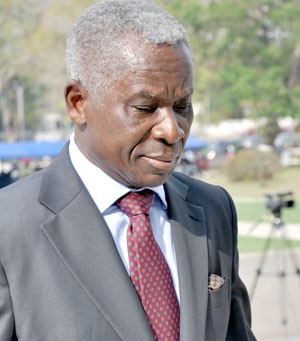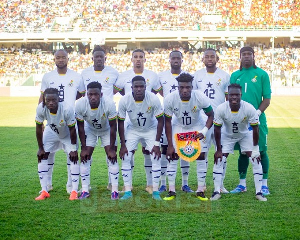The role of the military is to defend the nation, hence, the army has no business governing a country, former national security advisor Brigadier-General Joseph Nunoo-Mensah has said.
The former Chief of Defence Staff of the Ghana Armed Forces also holds the view that the military does not possess any special qualities that make it superior to civilians in the governance of a state, adding that the duties of officers lie in the preservation of the security of the country.
The retired army officer, who resigned from the Provisional National Defence Council (PNDC) in 1982 after disagreements with the then leader, Flt. Lt. J.J. Rawlings, was a guest on Class91.3FM’s Executive Breakfast Show on Wednesday 9 March 2016.
He told host Ekow Mensah-Shalders that: “Personally, I have never supported military rule. When I was in the army at Sandhurst, we were taught not to get into politics [as military men]. We have a role to play to defend and protect the nation. We don’t have special skills to enable us run the country than anybody else.”
However, he noted that “if there is general chaos and there is no authority, what do you want us to do? Sit down and watch the chaos? But to come into power and try to run Ghana has never been my understanding of the armed forces. It is not our job”.
He also cautioned that the country should not “create a situation where the armed forces are forced to” seize power.
The retired military officer believes the fortunes of the country were wrecked after Dr Kwame Nkrumah’s overthrow in 1966.
He bemoaned how industrial installations put up by Ghana’s first president were destroyed to the detriment of the nation.
In 1998, he served as the campaign manager for Nana AAkufo-Addo, who was the New Patriotic Party’s presidential candidate at the time.
Mr Nunoo-Mensah later defected to the National Democratic Congress (NDC), then in opposition.
Politics of Thursday, 10 March 2016
Source: classfmonline.com

















